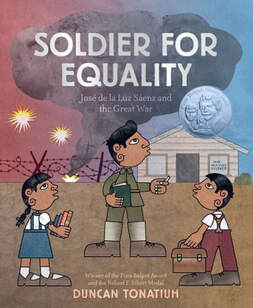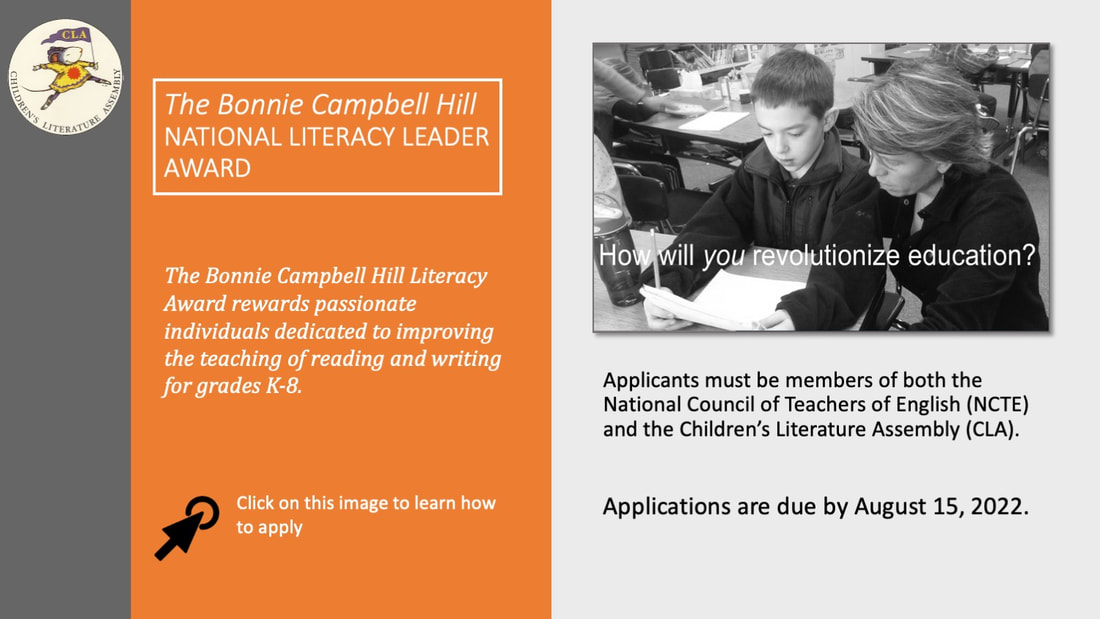By Erika Thulin Dawes and Xenia Hadjioannou on behalf of the Biography Clearinghouse  We close out the school year immersed in social strife and conflict. Our students are grappling both with big questions about humanity and substantial uncertainties about everyday life. Recent research describes rising mental health concerns for young people (Acheson, 2020; Cowie & Myers, 2021; Samji et al. 2022) and it’s not surprising that maintaining optimism is challenging in the context of war, a global pandemic, and climate change. As educators, we are seeking ways to provide our students with grounding and with hope. And we believe that biographies, life stories of inspiring people, can help to provide both an anchor and inspiration. Our latest Biography Clearinghouse entry features Duncan Tonatiuh’s picturebook biography Soldier for Equality: José de la Luz Sáenz and the Great War. Using his trademark illustrative style, digital collage inspired by Mixtec Pre-Columbian art, Tonatiuh describes the World War I experiences of ‘Luz’; a teacher, activist, Texan, and a person with Mexican heritage. Toniatiuh’s biography of José de la Luz Sáenz is a powerful narrative of the transformative power of literacy. Luz’s education and multilingualism were instrumental in his life trajectory; his knowledge allowed him to navigate the battlefield safely, keeping him out of the trenches and instead in a fortified command post for the intelligence service. He developed his skills in organizing while teaching English to Mexican American soldiers. And upon his return to teaching when the war was over, he turned his outrage over unequal schooling for Mexican American children into activism, establishing the League of United Latin American Citizens (LULAC), an organization that helped to end the segregation of Latinx children from white schools. In our Biography Clearinghouse entry, we provide an interview with Duncan Tonatiuh and a collection of teaching ideas to support student exploration of Soldier for Equality. These teaching ideas encourage students to consider the transformative power of literacy and the generative power of community organizing and activism. They include: an exploration of translanguaging and theme development in picturebooks; a history of and contemporary look at the experience of minoritized populations in the United States army; a call to allyship to counter bullying; a visual literacy exercise exploring traditional artistic motifs; and a tribute to teacher activists. Below is an excerpt of the teaching ideas in the Biography Clearinghouse entry for Soldier for Equality: José de la Luz Sáenz and the Great War:
Teachers as Activists
Citations Acheson, R. (2020). Research digest: The impact of the covid-19 pandemic on child, adolescent, young adult, and family mental health. Journal of Child Psychotherapy, 46(3), 429-440. https://doi.org/10.1080/0075417X.2021.1912810 Cowie, H., & Myers, C. (2021). The impact of the COVID‐19 pandemic on the mental health and well‐being of children and young people. Children & Society, 35(1), 62-74. https://doi.org/10.1111/chso.12430 Samji, H., Wu, J., Ladak, A., Vossen, C., Stewart, E., Dove, N., Long, D., & Snell, G. (2022). Review: Mental health impacts of the COVID‐19 pandemic on children and youth – a systematic review. Child and Adolescent Mental Health, 27(2), 173-189. https://doi.org/10.1111/camh.12501 Erika Thulin Dawes is a Professor of Language and Literacy at Lesley University where she teaches courses in children’s literature and early childhood literacy and is the program director of the graduate Early Childhood Education program. Erika is a former chair of NCTE’s Charlotte Huck Award for Outstanding Fiction for Children. Xenia Hadjioannou is an Associate Professor of Language and Literacy Education at the Harrisburg campus of Penn State University where she teaches and works with pre- and in-service teachers through various courses in language and literacy methodology. She is the Vice President and Website Manager of the Children's Literature Assembly, and a co-editor of The CLA Blog. The Bonnie Campbell Hill National Literacy Leader Award
|
Authors:
|
CLA
About CLA
|
Journal of Children's Literature
Write for JCL
|
ResourcesCLA-sponsored NCTE Position Statements
|
Members-Only Content
CLA Video Library
|
© COPYRIGHT 2018.
ALL RIGHTS RESERVED |



 RSS Feed
RSS Feed